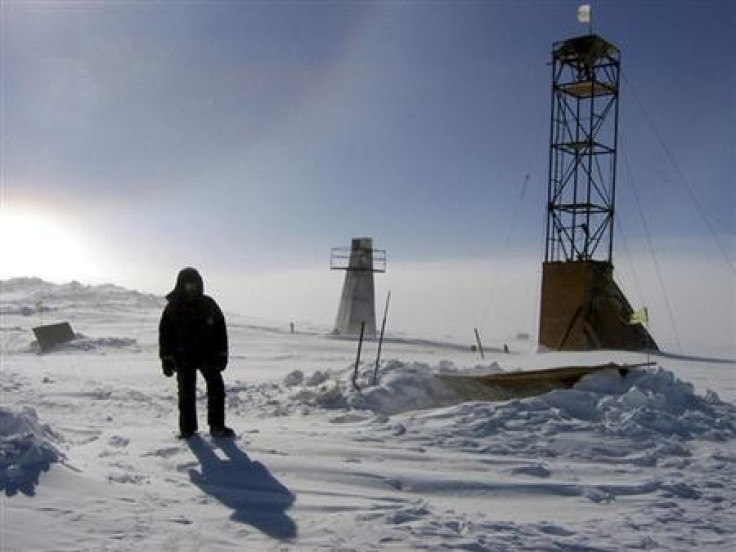'New Life Form' Discovered in Antarctic Lake

An unknown life form has been discovered thousands of feet under the ice in an Antarctic lake.
The bacteria was sealed off for millions of years under 12,000ft of ice in Lake Vostok, the RIA news agency reported.
The finding came after Russian engineers drilled through the continent's frozen crust last year, taking back samples of water from a vast lake that had been untouched for at least 14 million years.
Scientists believe the findings may yield insight into life on the planet before the Ice Age, and could even provide clues to life on other planets.
"After excluding all known contaminants, bacterial DNA was found that does not match any known species in world databases," said Sergei Bulat of the St Petersburg Nuclear Physics Institute.
"If it had been found on Mars, then without a doubt we would have said there is life on Mars - but this is DNA from Earth," he said. "We are calling this life form unidentified or unclassified."
Earlier this year, a US expedition reported seeing living cells under a microscope in field samples taken from the shallower subglacial Lake Whillans.
A British effort to reach a third body of water, Lake Ellsworth, was called off in December because of problems drilling.
Life forms that survive in the Antarctic could indicate whether - and how - life might exist in the extreme conditions on Mars or Jupiter's moon Europa.
Russian scientists analysed water that froze on to the end of the drill used to bored through to Vostok - the largest of a network of hundreds of lakes under the ice cap.
"When we tried to identify the DNA, it did not coincide with any known species. Its degree of similarity was less than 86 percent," Bulat told RIA.
"That is practically zero when working with DNA. A level of 90 percent tells us the organism is unknown."
Frozen samples from deeper in the borehole are being transported by boat to St Petersburg for analysis.
"If we again identify the same group of organisms in that pure sample of water, then we can confidently say we have found new life on Earth," Bulat said.
© Copyright IBTimes 2024. All rights reserved.





